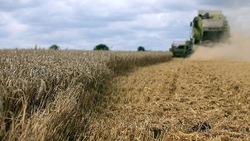The Huuriyet | March 18, 2011

ISTANBUL - Hasat Hud, a state-supported Qatari company, wants to buy vast swaths of public land in Turkey to invest in agriculture and husbandry, Anatolia news agency reports. Turkish officials told the company this is legally impossible, but offered the option of renting land for 49 years. Rising food prices are forcing import-dependent countries like Qatar to ‘grab’ land in other countries
Qatar, a net importer of foodstuffs vulnerable to food security risks, is eyeing state land in Turkey for agricultural investment.
The state-supported Qatari company Hasat Hud has asked for “tens of thousands of acres of Treasury land” from Turkey’s Finance Ministry, according to Anatolia news agency.
Qatar has become the first among many Gulf countries to knock on the doors of Turkish public institutions for agricultural investments, the agency said. The issue was brought to the agenda during the Turkey-Qatar joint economic commission meetings held in Doha earlier this week.
Qatari officials told their Turkish counterparts that they wish to invest in agricultural production and animal husbandry. Turkish officials then directed Hasat Hud executives to talks with the Agricultural Enterprises General Directorate, or TİGEM.
However, Hasat’s investment plans were far too big for TİGEM to handle alone. The company asked to buy Treasury land to the tune of “hundreds of thousands of dunams,” according to Anatolia news agency. One dunam equals around 0.25 acres.
Turkish officials told them it was legally impossible to sell Treasury land for agriculture-based foreign investments.
“But this could be done by renting the land for 49 years,” an official told the agency, speaking on condition of anonymity. “We are handing over land to tourism investors in this way. We can do the same thing for agricultural land.”
The request of the Qatari company will be evaluated by the Finance Ministry.
Global price surge
Global food costs are now at their highest point since the Food and Agriculture Organization, or FAO, began tracking them 20 years ago. Global prices surged 2.2 percent on a monthly basis just in February, according to the FAO's index, which measures the price of staple food items and big commercial crops like corn and soybeans. As of February, the index reached its highest level since 1990, the Associated Press reported earlier this month.
Meanwhile, Hasat Hud also talked with Turkish private companies on joint investments. Ufuk Yılmaz, a top executive at Ata Holding, said they talked with Hasat on possible animal husbandry investments.
“We were in touch with them before,” Yılmaz said. “Ata Holding already has agricultural investments. We have a joint husbandry investment in Acıpayam, Denizli with Sancak Holding. We may do the same thing with Hasat Hud, but we may also jointly invest in agricultural production.”
The land Hasat Hud contemplates is “vast,” Yılmaz said. “Other Gulf nations also are working to invest in Turkey’s agriculture.”
The majority of Arab countries import 50 percent to 90 percent of their food requirements. As the world’s largest net importers of cereals, these countries are more exposed to severe swings in agricultural commodity prices.
Higher food prices have pushed an estimated 44 million people into extreme poverty, according to the World Bank. Many analysts think that food price hikes are a factor in the recent uprisings in the Middle East.













